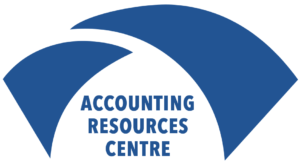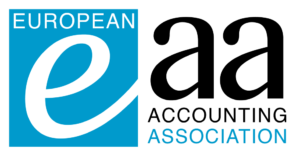READ THIS ARTICLE IN :
Who Are High-Net-Worth Individuals (HNWIs)?
High-net-worth individuals (HNWIs) are individuals possessing substantial financial assets. Typically, HNWIs are defined as those having liquid assets of at least $1 million, excluding primary residences, collectibles, and consumables. These individuals often have significant influence in financial markets due to their substantial investment capabilities and are key clients for private banks, wealth management firms, and luxury goods markets.
Regulatory Landscape for SMEs Engaging with HNWIs in Europe
The regulatory environment in Europe has seen significant changes aimed at increasing transparency and preventing financial crimes, which directly impact how small and medium-sized enterprises (SMEs) engage with HNWIs.
Enhanced Scrutiny and Transparency
The new Anti-Money Laundering (AML) laws in Europe have introduced stringent requirements for financial institutions and businesses dealing with HNWIs. Banks and luxury sellers must now conduct thorough due diligence to verify the source of funds and ensure that transactions are not linked to illegal activities such as money laundering. This involves more paperwork and documentation for HNWIs, who must provide detailed information about their financial activities and the origins of their wealth.
Beneficial Ownership Disclosure
One of the critical aspects of the new AML laws is the requirement for clear disclosure of beneficial ownership. This means that any property or asset owned by HNWIs must transparently show the real owners, making it difficult to hide ownership behind complex corporate structures. This move aims to prevent illegal activities and promote honesty in business dealings.
Cash Transaction Limits
For SMEs, the new AML laws set specific limits on cash transactions. Any cash transaction over €10,000 must be reported, and even smaller transactions between €3,000 and €10,000 require careful scrutiny to ensure legitimacy. This regulation is designed to monitor large cash flows and prevent suspicious activities, making it crucial for SMEs to maintain accurate records and understand their customers’ financial backgrounds.
Financial Promotions and Certification Changes
Significant changes are also set to take effect in the certification process for HNWIs and sophisticated investors. As of January 31, 2024, the financial eligibility thresholds for HNWIs will increase, requiring an income of at least £170,000 and net assets of at least £430,000. These changes aim to prevent the misuse of exemptions and ensure that only genuinely eligible individuals can self-certify as HNWIs or sophisticated investors.
Cooperation Between Tax Authorities
The European Union has also strengthened its administrative cooperation in taxation, particularly concerning crypto-assets and advance tax rulings for HNWIs. The new directive mandates the automatic exchange of information on crypto-asset transactions and requires all EU-based crypto-asset providers to report transactions involving EU residents. This measure is intended to combat tax fraud, evasion, and avoidance, ensuring that HNWIs comply with tax regulations.
Conclusion
The evolving regulatory landscape in Europe presents both challenges and opportunities for SMEs engaging with HNWIs. While the increased scrutiny and transparency requirements may seem burdensome, they ultimately contribute to a more trustworthy and robust financial system. By staying informed and compliant with these regulations, SMEs can build stronger, more transparent partnerships with HNWIs, fostering sustainable growth and innovation in the market.
Chi sono gli High-Net-Worth Individuals (HNWI)?
Gli High-Net-Worth Individuals (HNWI) sono individui che possiedono ingenti asset finanziari. Tipicamente, gli HNWI sono definiti come coloro che hanno asset liquidi di almeno 1 milione di dollari, escluse le residenze principali, le collezioni e i beni di consumo.
Questi individui spesso hanno un’influenza significativa nei mercati finanziari grazie alle loro sostanziali capacità di investimento e sono clienti chiave per banche private, società di gestione patrimoniale e mercati di beni di lusso.
Panorama normativo per le PMI che si relazionano con gli HNWI in Europa
L’ambiente normativo in Europa ha visto importanti cambiamenti volti ad aumentare la trasparenza e prevenire i reati finanziari, che impattano direttamente su come le piccole e medie imprese (PMI) si relazionano con gli HNWI.
Maggiore controllo e trasparenza
Le nuove leggi antiriciclaggio (AML) in Europa hanno introdotto rigorosi requisiti per le istituzioni finanziarie e le aziende che operano con gli HNWI. Banche e venditori di beni di lusso devono ora condurre un’approfondita due diligence per verificare la provenienza dei fondi e assicurarsi che le transazioni non siano legate ad attività illegali come il riciclaggio di denaro. Ciò comporta più documenti e informazioni per gli HNWI, che devono fornire dettagli sulle loro attività finanziarie e le origini della loro ricchezza.
Divulgazione della proprietà effettiva
Uno degli aspetti chiave delle nuove leggi AML è il requisito di una chiara divulgazione della proprietà effettiva. Ciò significa che qualsiasi proprietà o asset di proprietà degli HNWI deve mostrare in modo trasparente i veri proprietari, rendendo difficile nascondere la proprietà dietro strutture societarie complesse. Questa mossa mira a prevenire attività illegali e promuovere l’onestà negli affari.
Limiti alle transazioni in contanti
Per le PMI, le nuove leggi AML stabiliscono limiti specifici per le transazioni in contanti. Qualsiasi transazione in contanti superiore a 10.000 euro deve essere segnalata, e anche le transazioni più piccole tra 3.000 e 10.000 euro richiedono un’attenta verifica per garantirne la legittimità.
Questa regolamentazione è progettata per monitorare i grandi flussi di contanti e prevenire attività sospette, rendendo cruciale per le PMI mantenere registri accurati e comprendere i background finanziari dei loro clienti.
Cambiamenti nella certificazione e promozioni finanziarie
Importanti cambiamenti sono previsti anche nel processo di certificazione per HNWI e investitori sofisticati. A partire dal 31 gennaio 2024, le soglie di idoneità finanziaria per gli HNWI aumenteranno, richiedendo un reddito di almeno 170.000 sterline e un patrimonio netto di almeno 430.000 sterline.
Questi cambiamenti mirano a prevenire l’uso improprio delle esenzioni e garantire che solo gli individui effettivamente idonei possano autocertificarsi come HNWI o investitori sofisticati.
Cooperazione tra autorità fiscali
L’Unione Europea ha inoltre rafforzato la sua cooperazione amministrativa in materia fiscale, in particolare per quanto riguarda le criptovalute e le decisioni fiscali anticipate per gli HNWI.
La nuova direttiva prevede lo scambio automatico di informazioni sulle transazioni in criptovalute e richiede a tutti i fornitori di criptovalute con sede nell’UE di segnalare le transazioni che coinvolgono residenti UE. Questa misura è intesa a combattere la frode, l’evasione e l’elusione fiscale, assicurando che gli HNWI rispettino le normative fiscali.
Conclusione
L’evoluzione del panorama normativo in Europa presenta sia sfide che opportunità per le PMI che si relazionano con gli HNWI. Sebbene i maggiori controlli e i requisiti di trasparenza possano sembrare gravosi, contribuiscono in ultima analisi a un sistema finanziario più affidabile e solido.
Rimanendo informate e conformi a queste normative, le PMI possono costruire partnership più forti e trasparenti con gli HNWI, favorendo una crescita e un’innovazione sostenibili nel mercato.
Wie zijn High-Net-Worth Individuals (HNWI’s)?
High-net-worth individuals (HNWI’s) zijn personen met aanzienlijke financiële bezittingen. Doorgaans worden HNWI’s gedefinieerd als personen met liquide activa van minstens $1 miljoen, exclusief de eigen woning, verzamelobjecten en consumptiegoederen.
Deze individuen hebben vaak een significante invloed op de financiële markten vanwege hun aanzienlijke beleggingsmogelijkheden en zijn belangrijke klanten voor private banken, vermogensbeheerders en luxegoederenmarkten.
Regelgevingslandschap voor mkb-bedrijven die met HNWI’s in Europa werken
De regelgevingsomgeving in Europa heeft significante veranderingen ondergaan gericht op het vergroten van transparantie en het voorkomen van financiële criminaliteit, wat een directe impact heeft op hoe kleine en middelgrote ondernemingen (mkb) met HNWI’s omgaan.
Versterkt toezicht en transparantie
De nieuwe antiwitwas- (AML) wetten in Europa hebben strenge eisen geïntroduceerd voor financiële instellingen en bedrijven die met HNWI’s werken. Banken en luxeverkopers moeten nu grondige due diligence uitvoeren om de bron van de geldmiddelen te verifiëren en ervoor te zorgen dat transacties niet zijn gelinkt aan illegale activiteiten zoals witwassen.
Dit houdt meer papierwerk en documentatie in voor HNWI’s, die gedetailleerde informatie moeten verstrekken over hun financiële activiteiten en de oorsprong van hun vermogen.
Openbaarmaking van uiteindelijk belanghebbenden
Een van de cruciale aspecten van de nieuwe AML-wetten is de vereiste voor duidelijke openbaarmaking van uiteindelijk belanghebbenden. Dit betekent dat elk eigendom of bezit van HNWI’s transparant de werkelijke eigenaren moet tonen, waardoor het moeilijk wordt om eigendom te verbergen achter complexe bedrijfsstructuren. Deze stap is bedoeld om illegale activiteiten te voorkomen en eerlijkheid in zakelijke transacties te bevorderen.
Limieten voor contante transacties
Voor mkb-bedrijven stellen de nieuwe AML-wetten specifieke limieten voor contante transacties. Elke contante transactie boven €10.000 moet worden gemeld, en zelfs kleinere transacties tussen €3.000 en €10.000 vereisen zorgvuldige controle om de legitimiteit te waarborgen.
Deze regelgeving is bedoeld om grote geldstromen te monitoren en verdachte activiteiten te voorkomen, waardoor het cruciaal is voor mkb-bedrijven om nauwkeurige records bij te houden en de financiële achtergronden van hun klanten te begrijpen.
Veranderingen in financiële promoties en certificering
Er staan ook significante veranderingen op stapel in het certificeringsproces voor HNWI’s en gesofisticeerde beleggers. Vanaf 31 januari 2024 zullen de financiële toelatingscriteria voor HNWI’s worden verhoogd, met een vereist inkomen van minstens £170.000 en een nettovermogen van minstens £430.000.
Deze veranderingen zijn bedoeld om misbruik van vrijstellingen te voorkomen en ervoor te zorgen dat alleen echt in aanmerking komende personen zich kunnen kwalificeren als HNWI of gesofisticeerde belegger.
Samenwerking tussen belastingautoriteiten
De Europese Unie heeft ook de administratieve samenwerking op belastinggebied versterkt, met name wat betreft crypto-activa en voorafgaande belastingbeslissingen voor HNWI’s.
De nieuwe richtlijn verplicht de automatische uitwisseling van informatie over transacties met crypto-activa en vereist dat alle in de EU gevestigde aanbieders van crypto-activa transacties met EU-ingezetenen rapporteren.
Deze maatregel is bedoeld om belastingfraude, -ontduiking en -vermijding tegen te gaan en ervoor te zorgen dat HNWI’s zich aan de belastingvoorschriften houden.
Conclusie
Het evoluerende regelgevingslandschap in Europa biedt zowel uitdagingen als kansen voor mkb-bedrijven die met HNWI’s werken. Hoewel de verhoogde controle- en transparantie-eisen belastend kunnen lijken, dragen ze uiteindelijk bij aan een betrouwbaarder en robuuster financieel systeem.
Door op de hoogte te blijven van deze regelgeving en er aan te voldoen, kunnen mkb-bedrijven sterkere, transparantere partnerschappen opbouwen met HNWI’s, wat duurzame groei en innovatie op de markt bevordert.



